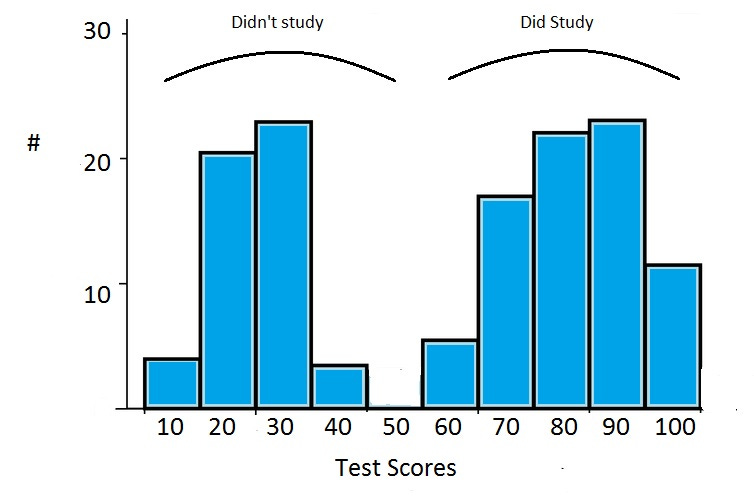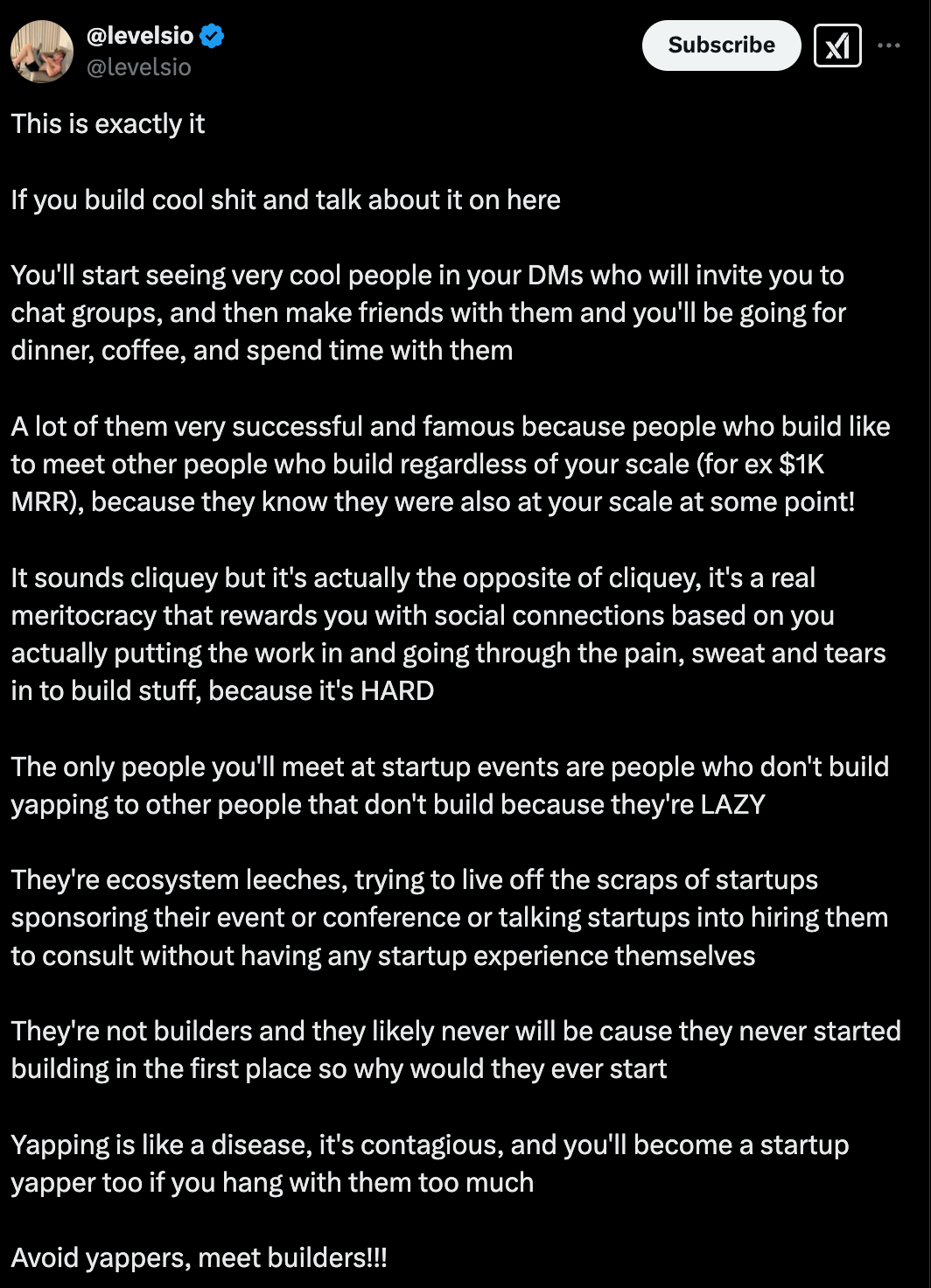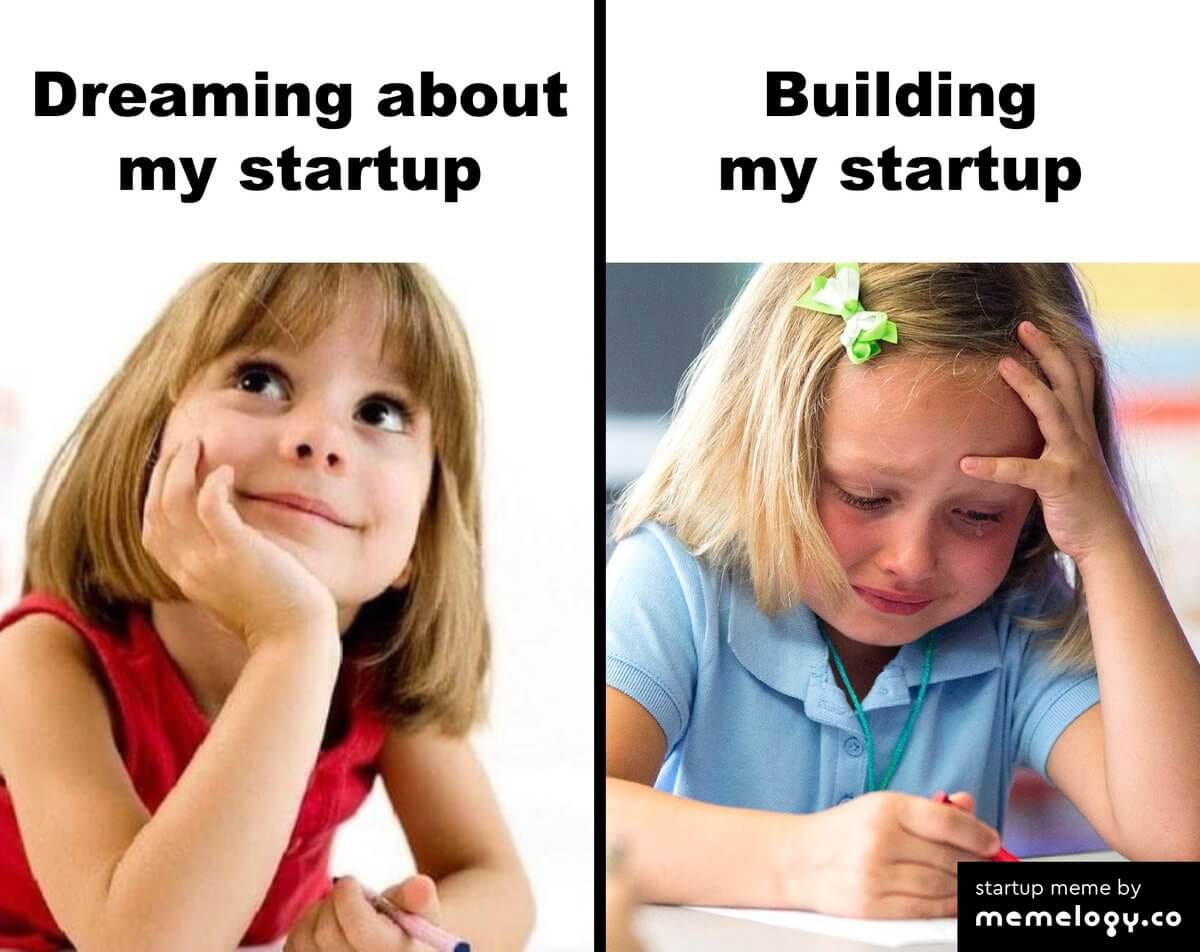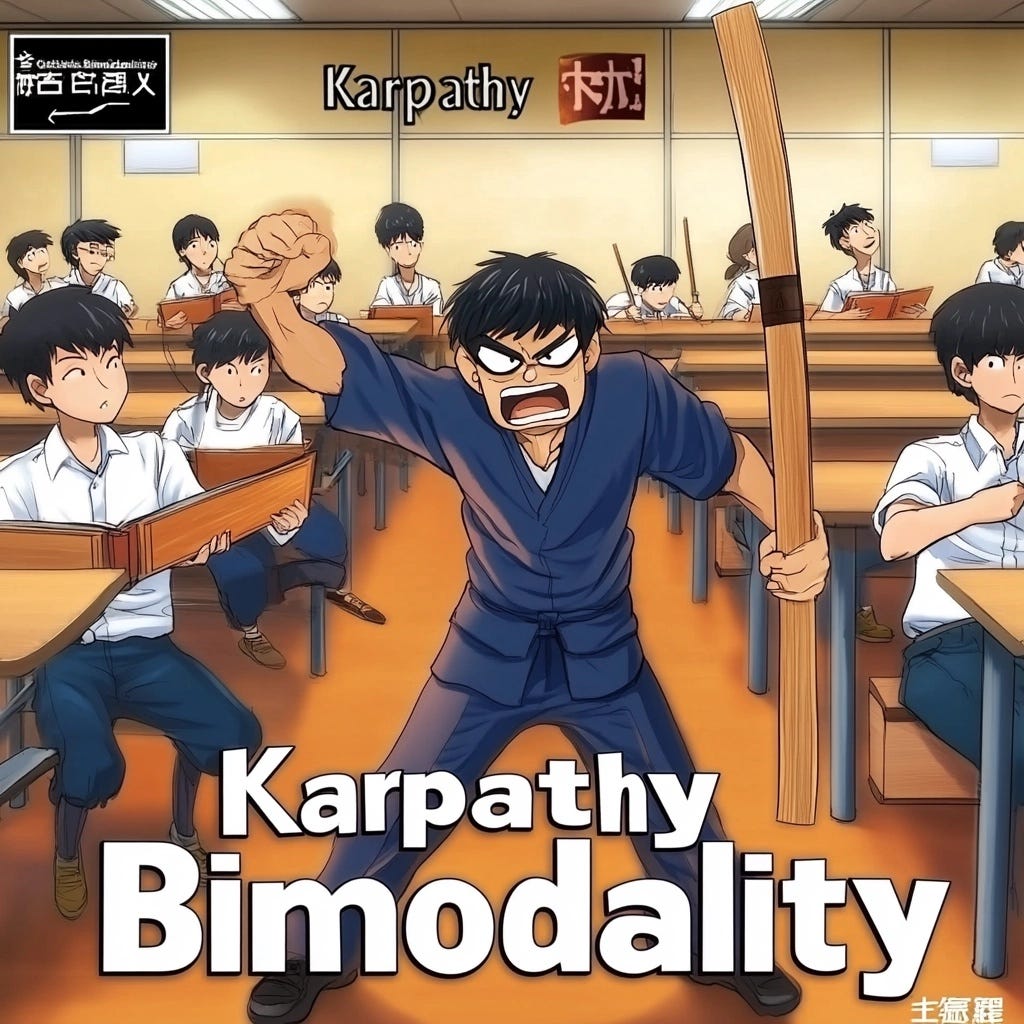Karpathy Bimodality: learning is f̶u̶n̶ f*ckin hard 📚
This is essay 2 for The Network State Writers Cohort #5: What the hell is Karpathy Bimodality, Learning "Business", Eastern way of learning
In a recent post about the Network School V.2, Balaji Srinivasan mentioned something that stuck with me for weeks, Karpathy’s Bimodality. Or the learning dilemma: either learning for fun (and learn nothing) or struggle to learn and gain knowledge.
But what does it actually mean? Let’s dive in.
💡 What the hell is Karpathy Bimodality
Who is Karpathy?
Andrej Karpathy is one of the best AI researcher and engineer in the world who has contributed to major AI developments as a senior director at Tesla, founding member of OpenAI, and researcher at Google DeepMind. He’s also known for his digestible teaching on AI, including a recent viral three hour lecture on LLM. One I’m absorbing minute by minute, with both admiration and brain numb.
He has a viral tweet on the “shortification” of learning. Arguing that actual learning shouldn’t be fun, but it’s a struggle. One that requires the learners to put their head and do the damn work. This idea is now widely known as Karpathy’s Bimodality. Read it for yourself below.
But what is bimodality?
Bimodality is a statistical term describing a distribution with two distinct peaks, meaning the data naturally splits into two groups. Examples include political ideology (conservative vs. liberal), wealth distribution (rich vs. poor), and sexuality (heterosexual vs. homosexual), and so on.
💰 Example of Karpathy bimodality: Learning business
I used to think business was something you could learn by studying it. Many people do. Go to the best business school, take the right online courses, follow the business gurus and you’ll know how to run a business.
But that’s the glorified mental masturbation of business. Real business is learned by trading in the market square, skills that humans have honed in since thousands of years. My grandmother, who traded coffee and cloves long before business schools existed, has mastered the real skill of business. Not by studying it, but by actually doing it.
As Naval Ravikant said: “There is no skills called business”
Nassim Taleb calls it street smarts. One who understands how the world really works through direct feedback and brute force. You either make money (positive reinforcement) or lose it (negative reinforcement). He despises management consultants and corporate management with no skin in the game, people who take the upside without ever facing the downside.
Another version of learning "business," especially in tech circles, is the endless chatter about the startup world. From founder podcasts to nonstop X threads on how to build a company. It's a dopamine hit on steroids. You feel like you’re making progress just by consuming content. Then there are the beer-and-pizza startup events, where people go hoping to get inspired and stumble upon the next big idea. As Peter Levels calls it, yapping. It’s like feeling you burned calories without ever waking up at 6 a.m. to do the actual run.
I fell into this bimodality for years, reading, learning, and asking about startups without actually starting one. It wasn’t until about a year ago that I quit my cushy six-figure tech job and faced the reality of building a business: living like a grad school again and do the actual work.
Everything I had learned about business in theory helped, but nothing truly prepared me for tough customer calls, tricky investor questions, and the challenge of getting people’s attention online or in a trade show.
Okay, enough about business. What about other subjects? How do we escape this trap of bimodality?
Maybe the answer isn’t about creating something new, but looking to the past, or more specifically, to the East.
🧘🏽 Eastern Way of Learning: The Anti Zen Method
When people think of Eastern teachings, they often imagine the calm, Zen-like wisdom of Buddhism: subtle, meditative, and serene. But the real Eastern way of learning? It’s the real stereotype, Asian students grinding away for endless hours. Either to actually get ahead of billions of peers or to avoid the zillion scoldings from their parents.
Although I wasn’t the most traditionally diligent student, growing up in Southeast Asia I lived this stereotype firsthand. School was brutal. Teachers didn’t just expect you to learn; they forced you to. Memorizing textbooks, drilling rigid concepts to your brain, dictating through word by word.
We also had “killer teachers” (not literally, but the term was common) who everyone feared. They weren’t physically violent, but they’d sometimes throw markers, shout from inches away from your face, and make sure we know who’s the boss. Sometimes in a Prussian-militaristic fashion. As Einstein had experienced in his high school in pre-war Germany.
I definitely don’t want my future kids to go through this harsh experience. But deep down, there’s something about this tough learning environment that triggers your monkey brain to *actually* learn. It’s rather simple, either learn, or get eaten by the czar of the whiteboard.
It wasn’t just at school, the grind continued after hours. Instead of spending our afternoons playing basketball, most of my friends and I went to extra learning sessions, drilling hard subjects we didn’t enjoy, like math. Looking back, now I see it as a privilege, a way to make the most of my brain’s peak teenage years. But at the time? It felt like hell. In primary school, I’d sometimes run and hide from my private tutor just to escape 90 minutes of math on a scorching tropical afternoon.
But maybe this is the real way to learn. Pushing through the hard stuff until it sticks. The reward wasn’t just a new pair of shoes from your parents for a good test score. It was a lifelong lesson that struggle is part of learning.
🐣 Takeaway: Gamification is a lie
Gamification is a lie. Ever since smartphones took over, the idea of gamifying everything, including learning, became the norm. Take Duolingo, for example. It’s a great app for an enjoyable language-learning experience. But ask anyone who’s tried it, most are more satisfied with their bird streaks than with their ability to actually speak the language.
I have to agree once again with Naval when he says curiosity is the foundation of all learning. Real learning isn’t about taking the path of least resistance, it’s about pushing through because you want to. The first step toward knowledge is simply caring enough to seek it out.
Understanding Karpathy’s Bimodality has made me more aware of this trap. Making the most of my limited learning time in this world.
I hope you and your family do the same. Thanks for reading!
If you enjoy reading this, check out my fellow Network State Writers @https://nsconnect.xyz/media













